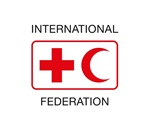Psychosocial training and support for volunteers to help them handle the mental strain of dealing with the high inflows of migrants, the transient nature of their support, and the traumatic stories they hear from migrants.
The Swedish Red Cross provides basic psychosocial training to all volunteers who work in social care programmes and who interact with other people. Psychological preparation modules are provided by specially trained volunteers or consultants (as needed). Volunteer leaders are responsible for initiating support when necessary. Additionally, the National Society promotes tutoring; encourages relief through peer support (in some programmes); and organizes ceremonies and other social meetings where volunteers can exchange experiences and receive social support. Support to volunteers is included in the Swedish Red Cross protocols. These stipulate the level of support volunteers are entitled to, how the support can be provided, and the time allocated to it. The availability of support is also highlighted in terms of reference and volunteers are informed of the availability of support during the recruitment process. The training is currently being adapted to deal with refugees and asylum-seekers, and will include updated information about the asylum process and new changes in legislation.
Other examples. Psychological preparations for volunteers are a part of the processes of many National Societies. Around half of the National Societies provide psychosocial support to volunteers. For example, the Australian Red Cross provides psychosocial support training, and information on stress management as part of its induction training. The Icelandic Red Cross has mandatory courses in psychosocial support for its volunteers. The Palestine Red Crescent Society also offers all new volunteers training in psychosocial support, psychological first aid and stress management.
- Difficult to ensure that all elements of the volunteer management cycle (especially training, safety, and psychological support) are properly observed while trying to deploy rapidly a large number of newly-recruited volunteers.
- An important learning point from 2015 is the importance of effective volunteer management. Furthermore, the reality on the ground was in many cases more severe than volunteers’ training had prepared them for. In this context, the need of psycho-social support and staff/volunteer care programmes (communication, routines for follow-up) proved crucial.
- There is a need for a back-up system when volunteer groups do not function well.

